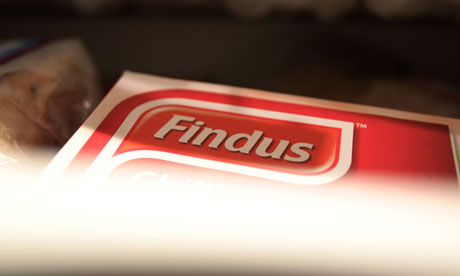Fragments of our past: A baby tooth from the Grotta del Cavallo, Apulia, southern Italy (L); and a piece of upper-jaw discovered in Kents Cavern, Devon, southern England
Two baby teeth and a jaw fragment unearthed in Italy and the UK have something revealing to say about how modern humans conquered the globe.
The finds in the Grotta del Cavallo, Apulia, and Kents Cavern, Devon, have been confirmed as the earliest known remains of
Homo sapiens in Europe.
Careful dating suggests they are more than 41,000 years old, and perhaps as much as 45,000 years old in the case of the Italian "baby teeth".
The details are in the journal Nature.
The results fit with stone tool discoveries that had suggested modern people were in Europe more than 40,000 years ago. Now, scientists have the direct physical remains of
Homo sapiens to prove it.
It confirms also that modern people overlapped in Europe with their evolutionary cousins, the Neanderthals, for an extended period.
These humans went extinct shortly afterwards, and the latest discoveries will raise once again the questions over
Homo sapiens' possible role in their relatives' demise.
"What's significant about this work is that it increases the overlap and contemporaneity with Neanderthals," explained Dr Tom Higham, from Oxford University, who led the
study on the British specimen found at Kents Cavern, Torquay.
"We estimate that probably three to five thousand years of time is the amount of the overlap between moderns and Neanderthals in this part of the world," he told the
BBC Science in Action programme.
The new results indicate, too, that modern humans swept across Europe via a number of different routes, as they populated the world after leaving Africa some 60,000 years ago.
Finding suggest humans were living in England as long as 44,000 years ago
Both the teeth and the jaw fragment have been known about for decades.
In the case of the jaw from Kents Cavern, this was first identified in 1927.
The
two Italian baby teeth were found in the Grotta del Cavallo in southern Italy in 1964.
Scientists have long pondered the specimens' age and origin. Many thought they were more likely to be Neanderthal remains.
It is only with the application of the very latest analytical techniques that the specimens' true status can be established.
Because of their concerns about modern contamination in the jaw, Higham and colleagues went back to animal fossils found above and below the object in the Torquay cave and re-dated those with greater precision.
This produced a likely age for the human remains of between 41,500 and 44,200 years ago.
The team also re-examined the shape of the jaw's three teeth, including their internal structure, to remove doubts that the jaw could be Neanderthal.
"We've done a new reconstruction, and we've actually found that one of the teeth was in the wrong place. That's for starters," said co-author Prof Chris Stringer, from London's Natural History Museum.
"But we've also done a really detailed comparison, right down to the shape of the roots and internal pulp cavities. We've gone to microscopic details to show this really is a modern human. You would never find a Neanderthal fossil that had this many modern human features."
Nick Powe, the owner of Kents Cavern in Torquay, gives a tour of the caves in which the jawbone was found
Likewise for the Italian baby teeth, Dr Stefano Benazzi and colleagues performed a morphological analysis, comparing the features of their specimens with a wide database of
Homo sapiens and Neanderthal remains. Again, this approach indicated the Grotta del Cavallo specimens were from a modern person.
The Benazzi team also resorted to advanced radio-carbon dating technology to reassess the age. This was applied to ornamental shell beads found in the same layer as the teeth.
"The new dating shows that the teeth must be between 43,000 and 45,000 years ago," said Dr Benazzi from the University of Vienna, Austria.
"That makes them the oldest European modern-human currently known," he told BBC News.
The re-assessments have further importance because palaeoanthropologists can now put modern humans in the caves at the same time as the stone and bone tool technologies discovered there.
Climate story There has been some doubt over who created the so-called Aurignacian artefacts at Kents Cavern and the slightly older Uluzzian technologies at Grotta del Cavallo. It could have been Neanderthals, but there is now an obvious association in time with
Homo sapiens.
No-one really knows why Neanderthals went extinct or what part - if any - modern humans played in their disappearance. Scientists say it is not necessarily the case that there was conflict between the two groups; it could just have been that
Homo sapiens was better equipped to deal with the harsh challenges of the time.
"I think it's still very much an open question because climate is also a part of the story," commented Prof Stringer.
"The fact is that while these populations were overlapping, the climate of Europe was very unstable. Populations were expanding and shrinking and being pushed around by very rapid changes in environment.
"I think it's going to be a combination of factors, with both Neanderthals and modern humans being stressed but the moderns being perhaps a bit better adapted to the changes and being able to get through them. The Neanderthals on the other hand weren't, and they went extinct."










